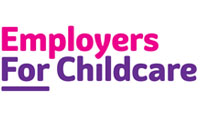What does the Chancellor’s Spring Budget 2024 mean for families?
In his second Spring Budget, on 6 March 2024, Chancellor Jeremy Hunt delivered his ‘Budget for Long Term Growth’, aimed at taking long term decisions needed to build a brighter future. Since the Chancellor came into office there has been a significant reduction in the rate of inflation, which is currently 4% having fallen from a high of over 11%. The Office for Budget Responsibility (OBR) is now predicting that it will fall below 2% in the second quarter of this year.
This fall in inflation is welcome for households and families who are seeing an easing of the cost of living pressures that we all have been living with over the past couple of years, and has given the Chancellor some opportunity for spending in this budget which, through the lowering of some taxes, will help some working families across the UK.
Key points from Budget 2024
Here are some of the key points from the Spring Budget at a glance:
- National Insurance: A reduction in National Insurance contributions for most employees from 10% to 8%, and for the self employed a reduction from 8% to 6% in Class 4 National Insurance, both from 6 April 2024.
- Child Benefit: An increase of £10,000 in the amount individuals are allowed to earn before Child Benefit starts to be reduced.
- Childcare: Increased funding for childcare providers in England delivering the 15 and 30 hours free childcare.
Read the full detail on today’s Budget on the Government’s website here.
Child Benefit
The government plans to reform Child Benefit to support working families. Child Benefit helps parents pay for the costs associated with having children, meaning they can better balance work with looking after their children.
The Chancellor announced a significant change to the Child Benefit eligibility rules for higher earning individuals. Currently those households with one person earning over £60,000 are not entitled to any Child Benefit. In addition, those households with one person earning between £50,000 and £60,000 per year have their Child Benefit reduced through the High Income Child Benefit Charge (HICBC). As a rough guide the amount of Child Benefit received reduces by 10% for every £1,000 earned above £50,000.
From April 2024 the lower threshold will rise from £50,000 to £60,000 meaning that parents earning up to £60,000 will receive the full Child Benefit amount. Child Benefit will not be fully withdrawn until individuals earn £80,000 or higher.
The Government estimates that nearly half a million families will gain an average of £1,260 in 2024-25 as a result of this change.
To end the unfairness in the current system, the government plans to administer the HICBC on a household income basis, rather than an individual basis, by April 2026. As this requires significant reform to the tax system, there will be a consultation on this launched in due course.
Personal taxes
Most employees have to pay two forms of tax through their employer, these are Income Tax and National Insurance.
There will be a cut in the main rate of Class 1 National Insurance from 10% to 8% which will take effect from 6 April 2024. Following the previous reduction from 12% in January, this means that someone on the average salary in Northern Ireland of around £33,000 would see a reduction in their National Insurance contributions of £817.
There will be no change in the rates of income tax, and a continued freeze in the tax-free personal allowance and the thresholds at which earners start to pay basic and higher rates of income tax until April 2028. This means that more people will be paying tax, and more will be paying tax at a higher rate.
This change in the National Insurance rate will have an impact on parents who are using Childcare Vouchers, by reducing the amount of savings available through that scheme.
Note: National Insurance changes apply to all of the UK. However, income tax changes apply in England, Wales and Northern Ireland only. Scotland has different taxation rules to the rest of the UK. The Scottish government set out its tax and spending plans for 2024/25 in its Budget Statement on 19 December 2023.
Self-Employed National Insurance changes
For the self-employed, there will also be cut of 2% in the rate of self-employed Class 4 National Insurance, this is on top of the 1% cut announced in the Autumn Statement, reducing Class 4 National Insurance to 6%, from 9% in 2023.
This is in addition to the previous announcement that the self-employed will no longer be required to pay Class 2 National Insurance.
Government figures suggest this will save the average self-employed person on £28,000 around £350 a year.
Childcare
The Chancellor reiterated the Government’s commitment to supporting working families. To support the expansion of 15 and 30 hours free childcare in England announced in last year’s Budget, there was a pledge to guarantee the funding rates paid to childcare provide over the next two years. This reflects that workforce costs are the most significant costs for childcare providers and represents an estimated additional £500 million of investment over two years.
While this has been welcomed by the childcare sector as a first step, there is a call for a commitment to increase funding in the longer-term, to give families and employers more certainty in accessing and delivering affordable childcare.
Underfunding of this scheme has been a real challenge for the sector in England, read more in our article here.
Previously announced uplift in benefits and the National Living and Minimum Wages
As previously announced, from April 2024 benefits, including Universal Credit and Tax Credits, will be uplifted by 6.7%. This is something that Employers For Childcare, along with many third sector and civic society organisations, had been calling for.
From April 2024 there will also be an increase in the National Living and Minimum Wages across the UK of approximately 9.8%, and from 1 April 2024 the age threshold for the National Living Wage will be lowered from 23 to 21 years of age.
The State Pension and Pension Credit will also be uprated, this will be in line with average earnings growth of 8.5%, and the Chancellor restated the Government’s commitment to the pensions triple lock.
The support for tenants in the private rented sector will be increased by increasing the Local Housing Allowance (LHA) to 30% of average local rent. This means that from April 2024 private renters in receipt of Universal Credit or Housing Benefit will receive more towards their rent than they have been receiving since the LHA was frozen in 2020.
These are vital to support people on the lowest incomes, but it is important to note that many families will still struggle to pay for their basic essentials. Across the UK, there are almost 4 million children living in poverty so more needs to be done to support the most vulnerable in our society.
No change in support for childcare
Despite the steep rise in the costs of accessing and delivering registered childcare over recent years there is no increase in this Spring Budget to the amount of financial support given towards childcare. The amount of childcare costs that could be claimed though the childcare element of Universal Credit was increased in July 2023, however there was not, and still has not been, an equivalent increase to the childcare element of Working Tax Credit. This discrepancy means many families in the old benefit system are unable to claim support towards the full amount of their childcare costs, which is available to those in receipt of Universal Credit.
Similarly, the maximum amount of support given through Tax-Free Childcare remains capped at £2,000 per child, despite the continued rise in childcare costs. Currently Tax-Free Childcare pays 20% of registered childcare costs up to a maximum of £2,000 per year, per child. Employers For Childcare, other parents’ groups and politicians in Northern Ireland have been calling for an increase in both the percentage of childcare costs supported and the removal of the £2,000 cap, to better reflect the increased childcare costs that families are now having to pay.
This change would particularly benefit families in Northern Ireland who cannot access the free childcare schemes available in other parts of the UK. Across the UK, families in Northern Ireland receive the least support with their registered childcare costs.
Household Support Fund
Today’s Budget included an announcement of an additional £500 million to enable the extension of the Household Support Fund in England from April to September 2024, to continue providing targeted support to vulnerable households with the cost of essentials such as food and utilities, as inflation continues to fall. This had been due to come to an end by the end of March 2024, but will now continue at its current level for a further six months.
While this is not available in Northern Ireland, the equivalent funding will be received through the Barnett formula, which local Ministers will have the responsibility for allocating.
Other measures
The freeze on alcohol duty was extended until February 2025 and fuel duty is set to remain at its current rate for the next 12 months, extending the temporary 5% cut which was due to end this month and cancelling the planned increase in line with inflation for 2024-25. The fuel duty freeze is due to save he average car driver £50 in 2024-25.
Northern Ireland
As a result of the Spring Budget announcements, Northern Ireland, through the Barnett Consequential, will receive £100 million for the Northern Ireland Executive to spend on public services. It is up to Ministers to decide when and how this money will be allocated across the government departments, but we would wish to see a significant portion allocated to support the delivery of short-term financial support for families and the childcare sector, and longer-term investment in childcare infrastructure through the new Early Learning and Childcare Strategy.
While we await the delivery of the long-term Early Learning and Childcare Strategy, we also need to see immediate financial support for childcare providers and families, to alleviate the impact of the increase to the National Minimum / Living Wage from April which is leading to unaffordable childcare fee increases. This has been committed to by the Executive, but as yet, there has been no announcement of any support package.
We are here to help you
We know it can be difficult to work out what financial support is available for your family and to interpret what changes announced in the Spring Budget mean for you. We want to make sure all families are receiving everything they are entitled to. For free, impartial and confidential advice, call our Family Benefits Advice Service on 028 9267 8200 or email hello@employersforchildcare.org.






